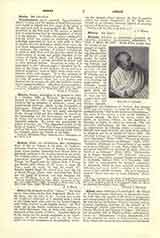

Abandonment (more properly, Self-abandonment.) a term used by writers of ascetical and mystical books to signify the first stage of the union of the soul with God by conforming to His Will. It is described as the first step in the unitive or perfect way of approaching God by contemplation, of which it is the prelude.
It implies the passive purification through which one passes by accepting trials and sufferings permitted by God to turn souls to Him. It implies also the desolation which comes upon the soul when relinquishing what it prizes inordinately in creatures, the surrender of natural consolations in order to seek God, and the loss for a time of the consciousness of strong and ardent impulses of the virtues of Faith, Hope, and Charity; and finally aridity or a lack of fervent devotion in prayer and in other spiritual actions.
According to some, it is equivalent to the” obscure night,” described by St. John of the Cross, or the darkness of the soul in a state of purgation, without light, amid many uncertainties, risks, and dangers. It is also misused to express a quietistic condition of soul, which excludes not only all personal effort, but even desires, and disposes one to accept evil with the fatalistic motive that it cannot be helped. (See Self-abandonment.)
JOHN J. WYNNE


